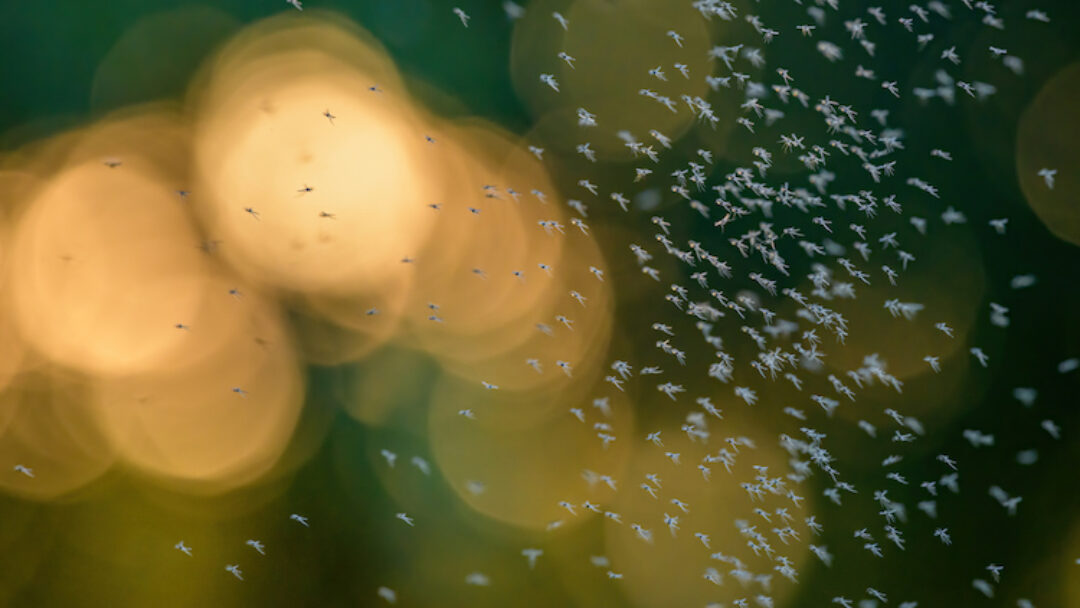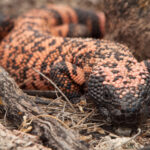As the valley slips into summer mode, more people will be venturing outdoors to enjoy the warm sun and the cool sparking pool time However, there is one annoying pest that can ruin outdoor time and invade your outdoor living space.
Gnats are those small, flying insects that seem to appear out of nowhere and hover around our heads or food. Gnats are attracted to moisture, so they are often found near bodies of water, moist soil or even freshly cut grass. While they may seem harmless, these pests can actually be a potential health hazard. Female gnats bite people because they require a blood meal to produce eggs, while males feed on plants. Symptoms of a gnat bite may include itching, discomfort and localized swelling.
Understanding the gnats invasion is the first step to effectively eliminating them from your home.
If you have your doors open this time of year, these tiny creatures may enter your home. They thrive in areas with high humidity as kitchens, bathrooms, and basements. These pests are not only annoying, but they can also contaminate our food and spread diseases. It is essential to take action as soon as you notice their presence to prevent a full-blown infestation.
Why Gnats are a Nuisance and Potential Health Hazard
Gnats are not just a nuisance; they can also pose a potential health hazard. Their small size allows them to easily enter our homes through open doors and windows, making it difficult to keep them out. Once inside, they can quickly multiply and infest our living spaces. Gnats are attracted to decaying organic matter, such as fruits, vegetables, and even damp soil. They lay their eggs in these areas, leading to an exponential increase in their population.
The main concern with gnats is their ability to contaminate our food. They can carry bacteria and other pathogens on their bodies, which can be transferred to the food we consume. Ingesting contaminated food can lead to various health issues, including food poisoning and gastrointestinal infections. Additionally, some people may experience allergic reactions to gnat bites, resulting in itching, redness, and swelling.
Common Areas Where Gnats Thrive
Gnats are commonly found in areas with high humidity and organic matter. The kitchen is one of the most common areas where gnats thrive, as it provides them with a constant source of food and moisture. They are often attracted to overripe fruits, vegetables, and spilled liquids. Bathrooms and basements are also prime breeding grounds for gnats due to the moisture present in these areas.
It is important to keep these areas clean and dry to prevent gnat infestations. Regularly dispose of overripe fruits and vegetables, clean up spills promptly, and ensure that there are no sources of standing water. By eliminating their food and water supply, you can significantly reduce the chances of a gnat invasion.
Identifying Different Types of Gnats
There are several different types of gnats that can invade our homes. The most common ones include fruit flies, fungus gnats, and drain flies. Fruit flies are attracted to ripe and decaying fruits, while fungus gnats thrive in damp soil and can be found in potted plants. Drain flies, as the name suggests, are commonly found in drains and sewer lines.
Identifying the type of gnat infestation you have is crucial in determining the most effective method of elimination. Fruit flies can be easily identified by their small size, red eyes, and the presence of wings. Fungus gnats are tiny, black flies that are often seen around potted plants. Drain flies are small, moth-like insects that are typically found near drains or other damp areas.
Natural Remedies to Get Rid of Gnats
When dealing with a gnat invasion, many homeowners prefer to use natural remedies to eliminate these pests. Not only are natural remedies safe for the environment, but they are also effective in getting rid of gnats. Here are some natural remedies you can try:
- Apple Cider Vinegar Trap: Fill a small bowl with apple cider vinegar and add a few drops of dish soap. The gnats will be attracted to the vinegar and get trapped in the soapy solution.
- Homemade Gnat Spray: Mix one part vinegar with three parts water in a spray bottle. Spray this solution around areas where gnats are present, such as kitchen counters or potted plants.
- Essential Oils: Certain essential oils, such as lavender, eucalyptus, and peppermint, have repellent properties. Dilute a few drops of these oils in water and spray the solution around your home.
These natural remedies can help eliminate gnats, but it is important to remember that they may not provide a long-term solution. If the infestation persists or becomes severe, it may be necessary to explore other methods of gnat control.
It is also recommended purchasing Insect Plug-in traps for your home or kitchen. The dual Fly Insect UV light Trap attracts flying mosquitoes, bugs, moths, fruit flies and gnats. The pests get stuck by the glue board without escape. \
Chemical Solutions for Gnat Control
If natural remedies fail to eradicate the gnat invasion, chemical solutions can be used as a last resort. There are various insecticides and gnat repellents available in the market that can effectively eliminate these pests. However, it is important to use these chemicals with caution, as they may pose risks to human health and the environment.
When using chemical solutions, always follow the instructions provided by the manufacturer. Wear protective clothing, such as gloves and a mask, to minimize exposure. It is also advisable to keep children and pets away from treated areas. If you are unsure about using chemical solutions yourself, it is best to consult a professional gnat control service.
Preventive Measures to Keep Gnats Away
Prevention is always better than cure when it comes to dealing with gnats. By implementing preventive measures, you can significantly reduce the chances of a gnat invasion in your home. Here are some preventive measures you can take:
- Keep your home clean and dry: Regularly clean your kitchen, bathroom, and other areas prone to gnat infestations. Wipe down surfaces, empty trash bins regularly, and fix any leaks or plumbing issues that may cause moisture buildup.
- Store food properly: Seal fruits, vegetables, and other food items in airtight containers to prevent gnats from accessing them. Avoid leaving food uncovered on countertops or in the open.
- Maintain your garden: If you have a garden, make sure to remove overripe fruits and vegetables regularly. Trim and dispose of decaying plants, as they can attract gnats. Avoid overwatering your plants, as damp soil is a breeding ground for fungus gnats.
Taking these preventive measures can help create an environment that is less attractive to gnats, reducing the likelihood of an infestation.
How to Treat Gnat-Infested Plants
If you have potted plants in your home, they can be a breeding ground for fungus gnats. These pests lay their eggs in the damp soil, and the larvae feed on the organic matter present. To treat gnat-infested plants, follow these steps:
- Allow the soil to dry out: Fungus gnats thrive in moist soil, so allowing the soil to dry out can help eliminate them. Avoid overwatering your plants and allow the top inch of soil to dry before watering again.
- Use a gnat repellent: There are commercial gnat repellents available that can be applied to the soil. These repellents contain beneficial bacteria that feed on the organic matter, reducing the food source for the gnats.
- Change the top layer of soil: If the gnat infestation persists, you may need to change the top layer of soil in your potted plants. Remove the existing soil and replace it with fresh, sterile soil to eliminate the gnat larvae.
By following these steps, you can effectively treat gnat-infested plants and prevent future infestations.
Professional Gnat Control Services
If all else fails and the gnat invasion becomes overwhelming, it may be time to seek professional gnat control services. Professional pest control companies have the expertise and resources to effectively eliminate gnats from your home. They can assess the severity of the infestation, identify the type of gnats present, and implement the most appropriate treatment methods.
When choosing a professional gnat control service, do your research and select a reputable company with a proven track record. Read reviews, ask for recommendations, and compare prices before making a decision. A professional gnat control service can provide a more comprehensive and long-lasting solution to your gnat problem.
Enjoy a Gnat-Free Environment
Dealing with a gnat invasion can be frustrating, but with the right knowledge and methods, you can effectively eliminate these pesky pests from your home. By understanding the gnats invasion, identifying the type of gnats, and implementing natural remedies or chemical solutions, you can regain control of your living space. Remember to take preventive measures to keep gnats away and seek professional help if needed. Enjoy a gnat-free environment and say goodbye to the constant annoyance and potential health hazards caused by gnats.








